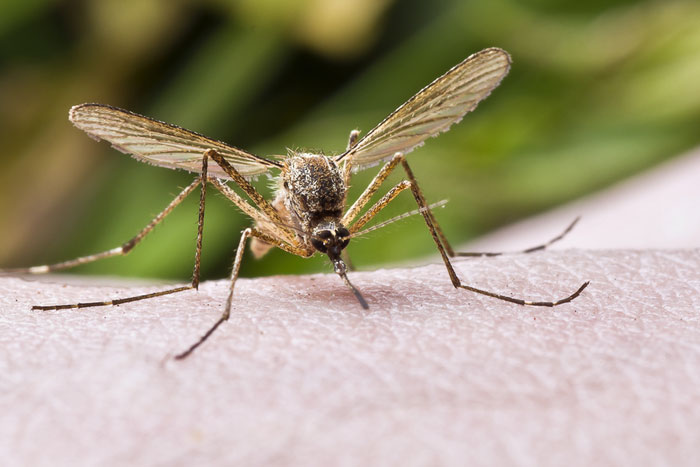Human cases of the mosquito-borne West Nile virus are starting to turn up in Connecticut. Public health officials confirm two cases in the state, in Newington and Fairfield, so far this year.
The state has been tracking West Nile activity every summer for the last two decades, as it does have the potential to cause severe illness in the elderly. But it’s very rare for people infected with West Nile virus to even develop symptoms or realize they have it, let alone to develop a serious illness. Since 1999, 136 human cases have been diagnosed in Connecticut, three of them fatal.
And while mosquitoes can carry illnesses much more dangerous than West Nile virus—such as dengue fever, chikungunya, Zika, malaria, or yellow fever—the vast majority of the United States is free of them. That includes Connecticut.
Connecticut has the Culex mosquito, or the “house mosquito,” which carries West Nile virus and less commonly, St. Louis encephalitis or La Crosse. Most of the time infections with these viruses occur without symptoms.
“The good news is, the risk of getting one of these viral infections following a mosquito bite is pretty low, but it’s not zero,” says Dr. Henry M. Feder Jr, professor of Family Medicine and Pediatrics at UConn Health, who has published extensively about insect-borne disease.
In very rare cases, house mosquitoes transmit eastern equine encephalitis (EEE) to humans. As the name suggests, nearly all transmissions of EEE are to horses, but if a person is infected, it can be a life-threatening infection. That usually doesn’t happen more than twice a year in the U.S.
“When we find viruses like West Nile and EEE in mosquitoes, that doesn’t mean right away it jumps to people,” Feder says. “Every year EEE is found in mosquitoes; however, only once has a person in Connecticut been infected.”
Spray to Keep the Bugs Away
A low risk becomes even lower by taking steps to avoid getting bitten. The best way to avoid mosquito bites is to reduce exposed skin to limit the potential feeding area on your body. Recommendations include wearing long sleeves and long pants.
But, acknowledging that it’s not realistic to expect most people to wear long sleeves and long pants in the heat of summer, Feder recommends using an insect repellent containing 20 to 30 percent DEET.
“Read the labels of mosquito repellents and look for ones that contain DEET,” Feder says. “Put that on exposed skin, and it works for eight hours. There’s no real danger to it. It can be used on babies.”
Repellents with DEET work by giving off a scent that ruins mosquitoes’ appetite for a human blood meal.
Playing Favorites
There’s actually science behind the idea that some people are more susceptible to mosquito bites than others. It has to do with the microbiome, or bacterial content, on our skin.
“There was an interesting study where they actually looked at the bacteria flora of different peoples’ skin, and they found that certain microbiome attract mosquitoes,” Feder says. “Another factor that attracts mosquitoes is the carbon dioxide that people give off. For example, pregnancy is associated with increased carbon dioxide, which explains why mosquitoes are attracted to pregnant females.”
Other potential draws for mosquitoes include sweat and a rise in body temperature. They also seem to have a preference for Type O blood.



